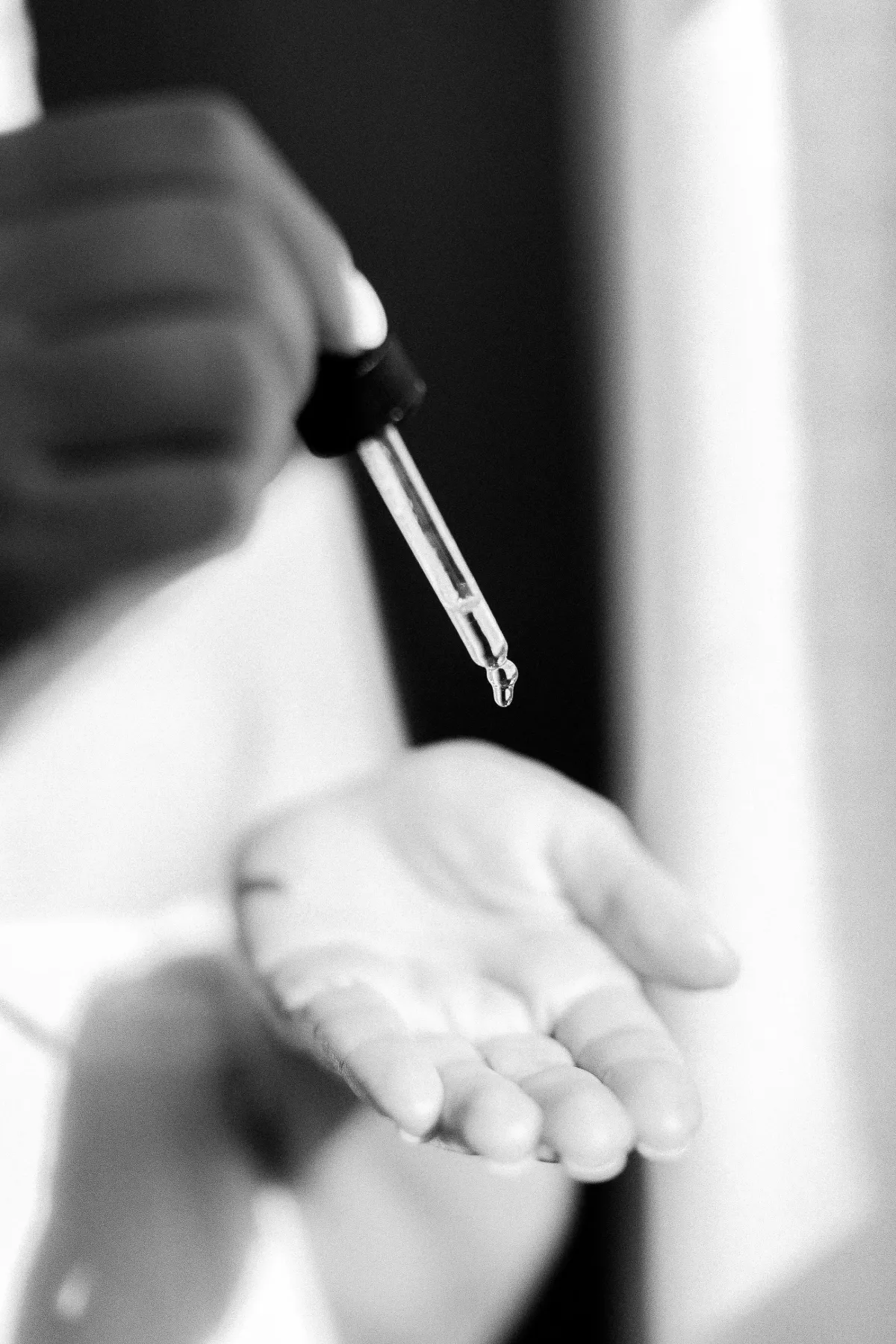
Is your skin desperately trying to tell you something about your liver?
Skin Liver Axis:
The Detox Link Behind Chronic Skin Flares
A FREE, Live, Virtual Workshop
Date: Monday, July 21st
Time: 12:00pm PT / 3:00pm ET
Presented by: Sinclair Kennally, CNHP, CNC
Claim Your FREE Download: Liver Stagnation Self-Assessment When You Register Below


Is your skin desperately trying to tell you something about your liver?
Skin Liver Axis:
The Detox Link Behind Chronic Skin Flares
A FREE, Live, Virtual Workshop
Date: Monday, July 21st
Time: 12:00pm PT / 3:00pm ET
Presented by: Sinclair Kennally, CNHP, CNC
Claim Your FREE Download: Liver Stagnation Self-Assessment When You Register Below

Join the Workshop Now
& Claim Your FREE Download: The Liver Stagnation Self-Assessment When You Register Below
When: July 21st @ 12:00pm PT / 3:00 pm ET
Where: From The Comfort of Your Own Home
Price: FREE

A Peak Inside The Workshop
During this live, interactive workshop, I'll be covering:
Why Skin Expresses Your Liver Overload and what to do about it
How Each Skin Condition is Expressing Different Signs of Liver Distress: Eczema, psoriasis, histamine flares, candida, rosacea, acne, rapid skin aging
What Your Liver Needs From You to stop transferring stress to your skin
Why Topicals Aren't Working, and why steroids can set your healing back further
The Powerful Connection between your liver's detoxification capacity and keeping your skin clear and healthy
The good news? Your liver has remarkable regenerative capacity when given the right support. And when your liver functions optimally, your skin naturally reflects that internal balance.
FREE DOWNLOADABLE BONUS!
Everyone who registers will receive a FREE Liver Stagnation Self-Assessment, which I will review live! Discover how toxins might be affecting your liver (and therefore, your skin health) and the next steps you can take to learn how to address them.
IMPORTANT! You must attend the workshop live, online in order to analyze your self-assessment in real-time. I will talk through this assessment to help you understand your unique situation, and what potential next steps to take


Why Nothing Has Worked So Far
If you've been battling neurological symptoms from anxiety to mood swings, you've probably tried therapy, medications, supplements, and mindfulness practices—but your symptoms persist or come roaring back at the slightest trigger.
That prescription cream your dermatologist gave you might be creating a much bigger problem than the one it's supposedly solving. Many people don't realize that topical steroids and other prescription skin medications come with a hidden cost—they mask symptoms while allowing the underlying liver issue to worsen silently.
Here's the troubling pattern I've seen hundreds of times:
You develop a skin condition and visit a dermatologist
They prescribe a steroid cream that temporarily suppresses inflammation
Your symptoms improve dramatically (at first)
Gradually, the cream becomes less effective, so you apply more frequently
When you try to stop using it, your skin erupts worse than before
You're now caught in a dependency cycle, with your actual liver-related root cause growing more severe
This explains why everything you've tried is coming up short. A liver issue is a skin issue, so it's important to address your liver no matter what your chronic skin condition.
What if every rash, breakout, and flare-up is actually your body's distress signal about something deeper?
Did you know that 70% of people with chronic skin conditions likely have an overloaded liver? It's a hidden issue that can affect your skin health, energy, and even hormone balance.
Your skin speaks volumes about what's happening inside your body—especially when it comes to your liver function.
While you've been focusing on your skin, the real action might be happening in your liver—the body's primary detoxification center that few dermatologists think to investigate.

Is This Workshop For You?
Here are some alarming statistics:
1 in 3 adults now suffer from some form of chronic skin condition
Eczema cases have increased by over 300% in the past three decades
Rosacea affects more than 16 million Americans
Over 8 million Americans have psoriasis, with cases rising yearly
Research shows that people with non-alcoholic fatty liver disease are 3x more likely to develop psoriasis
Histamine intolerance (causing red, itchy skin) often stems from sluggish liver metabolism
If you've experienced conditions and symptoms like:
Eczema that doesn't respond to topical treatments
Rosacea that flushes with certain triggers
Rashes that mysteriously appear and disappear
Psoriasis that comes and goes in flares
Hives or histamine reactions
Skin that reacts unpredictably to products that once worked fine
Adult acne that persists despite skincare routines
Rapid skin aging despite good skincare
Worse symptoms after high-fat or processed foods
Adult acne that persists despite skincare routines
Rapid skin aging despite good skincare
Persistent dark circles under your eyes
Then there's a good chance there are hidden stressors affecting your liver and gallbladder. These widespread symptoms aren't random, and you're not broken. Your body is giving you clues about what's really going on beneath the surface.

Your Skin Is Drowning In A Toxic Soup—And Your Liver Can't Keep Up
In the last 75 years, over 85,000 synthetic chemicals have been introduced into our environment. Your liver—designed for a pre-industrial world—is now forced to process an unprecedented toxic burden:
Glyphosate residues coating conventional produce
Microplastics infiltrating your drinking water
Phthalates and parabens in personal care products
PFAS "forever chemicals" in cookware and packaging
Flame retardants in furniture and electronics
Heavy metals in foods, supplements, and cosmetics
VOCs from cleaning products and building materials
Pharmaceutical residues in water supplies
Air pollution particles that penetrate your skin barrier
Processed food additives and preservatives
When this chemical onslaught exceeds your liver's processing capacity, your skin becomes the backup exit route—and the visible evidence of internal chaos.
Meet Your Guide, Sinclair Kennally
Sinclair Kennally, CNHP, CNC, is a highly sought-after expert in neurological healing. With an award-winning reputation for empowering people to take back their brain health and as CEO of Detox Nation, she has guided over 15,000 students to find relief from persistent mental health symptoms through cutting-edge neuro-detox therapies and toxin removal techniques.
Through her own similar healing journey from debilitating brain fog and emotional dysregulation, she has empowered thousands of people to reclaim their mental clarity by taking matters into their own hands. Sinclair brings no-nonsense guidance to her workshops, blending compassion with research-based practices so you can finally feel like yourself again.

Space is Limited!
Don't miss this live opportunity to learn how to reclaim your skin from hidden liver stressors. Join me for this breakthrough workshop to take the first step toward truly reversing your chronic skin conditions.
What: Skin Liver Axis: The Detox Link Behind Chronic Skin Flares
Date: Monday, July 21st
Time: 12:00pm PT / 3:00pm ET
Presented by: Sinclair Kennally, CNHP, CNC
